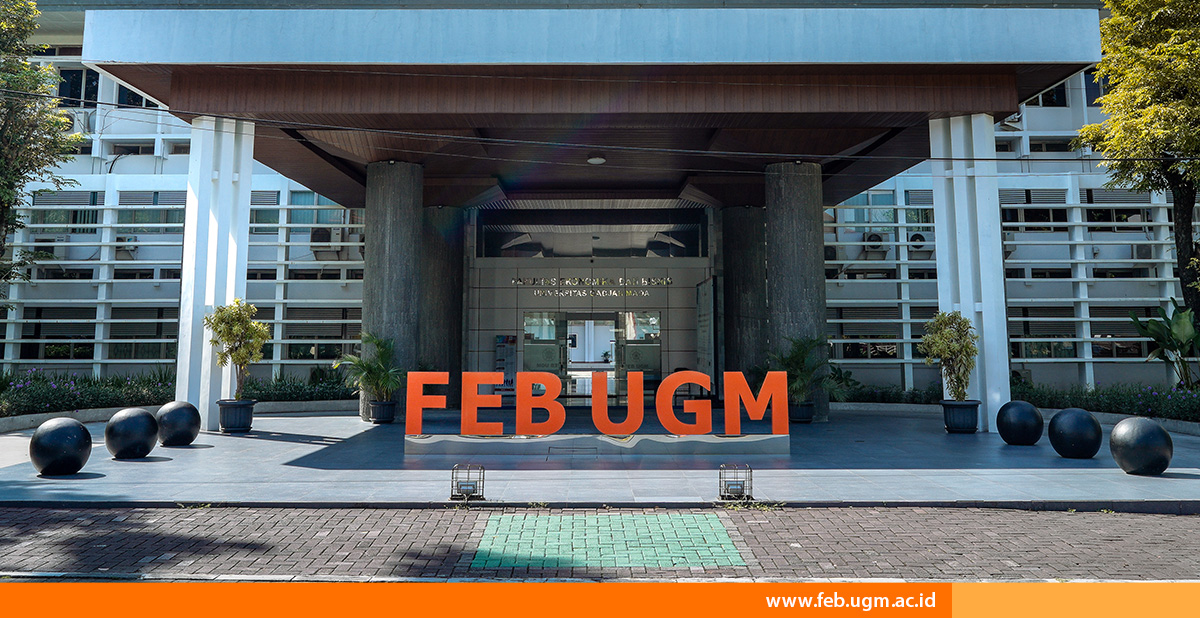
The Master of Science in Economics Study Program at the Faculty of Economics and Business, Universitas Gadjah Mada (FEB UGM), has officially been awarded the “Excellent” accreditation status by the Independent Accreditation Agency for Economics, Management, Business, and Accounting (LAMEMBA). With this achievement, all study programs at FEB UGM have now earned national “Excellent” accreditation. FEB UGM houses 14 study programs under three departments, consisting of three undergraduate, seven master’s, three doctoral, and one professional program.
“The great news we’ve been waiting for over the past two months has finally arrived. Alhamdulillah, the Master of Science in Economics program has received the ‘Excellent’ accreditation from the national accreditation body, LAMEMBA,” said Bayu Sutikno, S.E., M.S.M., Ph.D., Vice Dean for Academic and Student Affairs at FEB UGM, on Monday (May 5, 2025) at FEB UGM.
Bayu noted that this milestone complements FEB UGM’s previous achievements, where all study programs have been internationally accredited for the third time since 2014 by the Association to Advance Collegiate Schools of Business (AACSB).
“This makes it official: 100% of our 14 study programs at FEB UGM—undergraduate, professional, master’s, and doctoral—are now nationally accredited as ‘Excellent’ by LAMEMBA for the next five years,” he stated.
Bayu further explained that this success is the fruit of the seeds of quality and professionalism planted by FEB UGM’s founders and predecessors and nurtured continuously by each generation of leaders and academic community members.
“This result would not have been possible without the support of our faculty members, students, alumni, professional staff, and industry partners,” he added.
Bayu emphasized that this accreditation should not be seen as the final goal but as motivation to pursue ongoing improvement.
“We won’t rest on our laurels. We will continue our efforts of ginong prati dino—or continuous improvement—to deliver the best possible economics and business education,” he said.
Professor Indra Wijaya Kusuma, Head of UGM’s Quality Assurance and University Reputation Unit (SPMRU), congratulated FEB UGM for its outstanding achievement in safeguarding learning processes and outcomes. He noted that FEB UGM was the first and only faculty of economics in Indonesia to earn AACSB accreditation in 2014—one of the world’s most prestigious business school accreditations.
“The effort to obtain this recognition was a long and rigorous journey. FEB UGM is now undergoing its third AACSB reaccreditation process,” he said.
In addition to earning international accreditation from AACSB, FEB UGM proactively pursued national accreditation through LAMEMBA. The faculty successfully secured the highest national “Excellent” rating for all 14 of its study programs. By achieving dual accreditation status, FEB UGM ensures that the quality of its learning programs aligns with that of top business schools worldwide.
“Hopefully, FEB UGM will not become complacent with this achievement and will continue to conduct internal monitoring and assessments to maintain this high standard. Once again, congratulations to the Deans, Departments, study programs, faculty members, staff, and students for this achievement,” he added.
Meanwhile, Aprilia Beta Suandi, Ph.D., Head of the Quality Assurance and Accreditation Unit (UPMA), explained that FEB UGM is committed to continuously improving its education quality and outputs, ensuring that all processes meet national and international standards.
She explained that FEB UGM sets its academic standards by referring to the National Higher Education Standards, UGM’s internal benchmarks, and the AACSB Business Accreditation Standards. The faculty formulates these standards through close collaboration among faculty leadership, study program heads, and lecturers. FEB UGM continuously conducts monitoring, evaluation, and audits. It also uses feedback from external assessors during the accreditation process as a basis for ongoing improvements.
Report by: Kurnia Ekaptiningrum and Shofi Hawa Anjani
Sustainable Development Goals









